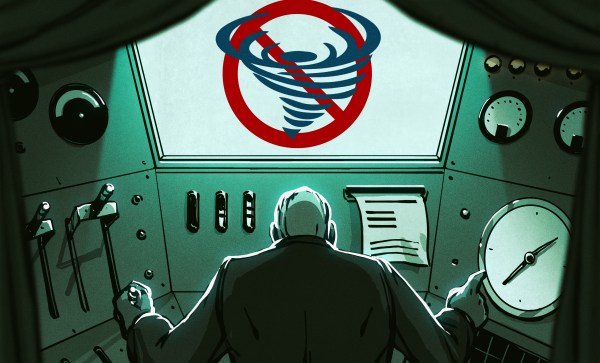It used to be a common expression to say that something would happen when “people walked on the moon.” That is, something that was never going to happen. Of course, by 1960, it was clear that someone was going to walk on the moon eventually. There were many other things everyone “knew” would happen in the future. Some of them came true, but many of them didn’t. Some, like video phones and robot factory workers, came true in a way, but not as people imagined. For example, people were confident that computers would easily translate between human languages, something we still have trouble doing entirely reliably. Another standard prediction is that people would control the weather.
Controlling the weather, in some ways, seems even less likely than walking on the moon. After all, we know where the moon is and where it will be. We still don’t understand precisely what causes the weather to behave the way it does. We have models and plenty of scientific theories. But you still can’t know exactly what’s going to happen, where, or when.
History
If you farm or live in a hut, weather is especially important. You want rain but not too much rain. Without scientific knowledge, many cultures had rain-making superstitions like a rain dance or other rituals meant to encourage rain. Some think that loud noises like cannon fire prevent hail. Charlatans would promise rain in exchange for donations.
However, science would eventually surface, and in the 1800’s James Espy — the first U.S. meteorologist — theorized that convection was what really caused rain. He had bold plans to set massive fires to encourage rain but could not convince Congress to go along.
Half a century later, Robert St. George Dyrenforth tested the effect of explosions on rainfall. There is no evidence that his cannon and fireworks did anything. He did, however, claim credit for any rain that happened to occur nearby. There have been many reports that explosions cause rain — rain often falls after a heated battle, apparently. The government in Thailand tried to induce rain using dry ice flakes dropped into clouds with, reportedly, some success. Abu Dhabi, Russia, and China’s governments claim to have working weather control today.












